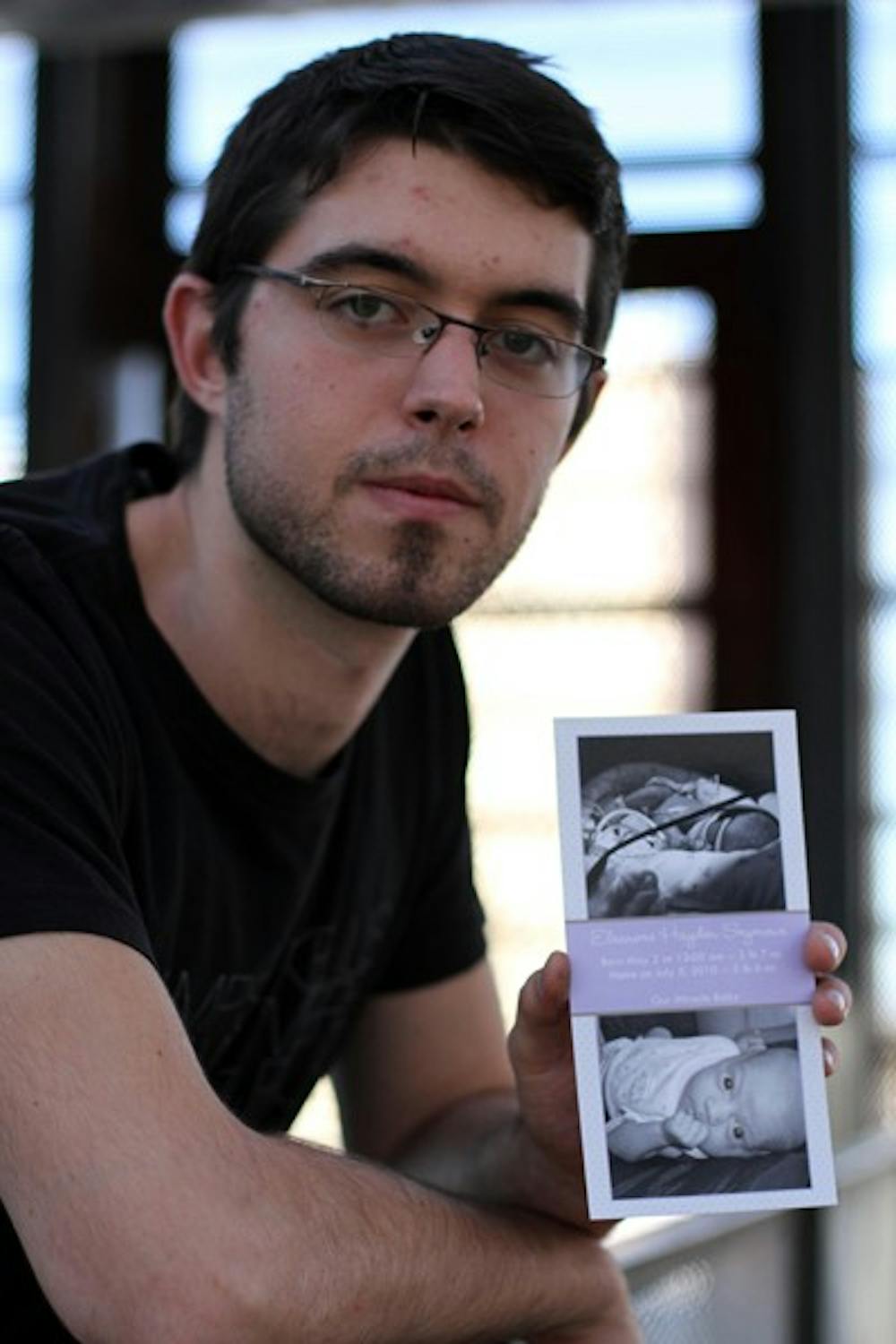Seymour Enterprises, a company developed to produce cost efficient devices that monitor vital signs, was developed after a devastating event in mechanical engineering senior Peter Seymour’s life.
While ASU was humming with the tension of finals in 2010, Seymour was enjoying the first moments of his daughter’s short-lived life.
Seymour’s daughter Eleanore Hayden was born on May 2, 2010. She was three months premature and weighed just 2 pounds, 7 ounces.
After spending 64 days in the hospital, gaining almost three pounds and being home for almost a month, she seemed to be progressing well.
“It was scary at first,” said Seymour, “but she grew and she was a normal baby. She was feisty.”
Everything changed in an instant when Seymour awoke to discover Eleanore had passed away in her sleep, on what would have been her original due date.
“It was very difficult to deal with,” he said. “As a parent, that's your objective in life, to nurture them and help them thrive.”
Doctors told Seymour that Eleanore had passed away from positional asphyxia, a condition related to Sudden Infant Death Syndrome.
SIDS is defined as the sudden unexplained death of an infant usually under a year old, and although rates have decreased over the last several years, it remains one of the leading causes of infant mortality, according to the American SIDS Institute's website.
At the time, Seymour was working on a device for Fender Guitars, which was able to sense movement and rhythms and the project sparked an idea.
“If I can make this sensor for Fender, why is there nothing on the market that can sense breathing?” he said.
Seymour said the only other options on the market were either very expensive or inaccurate, often producing false positives.
He created a company with six others, Seymour Enterprises, and began working on a smaller device that can be worn as a wristband and connect to a smartphone as an application.
“For a really low cost, about $25 to $50, you can take a smartphone, which most of us already have and give it the ability to look inside your body,” he said.
Seymour's friend and biomedical engineering senior Eric Lehnhardt began working as vice president of research and design, and was present with Seymour when he was awarded the funding from the Edson Student Entrepreneur Initiative at ASU last spring.
“It's been a long process,” said Lehnhardt, “but we're hoping to have a device to hold in hand and present within a month.”
Seymour said they are planning to have one device finalized by December and hopes to be producing several hundred by the summer to use in tests and present to the Food and Drug Administration.
Biomedical engineering senior Ethan Province joined the company this year assisting with research and design.
Province is an advocate of the entrepreneurship opportunity.
“In this state of the economy people need to be out there, innovating and changing lives,” he said.
While the group said they acknowledge the difficulties ahead, including funding the project and receiving approval from the FDA, they are confident the device will be well-received.
“Every parent is worried about it at some level,” Seymour said. “Almost everyone knows someone who's experienced it, and that's too much for me.”
Lehnhardt said the beginning focus was SIDS prevention but the hope is the device will eventually be used in hospitals and for home care — something that has previously been expensive and inconvenient.
Seymour said working on the project has helped him through the grief of losing baby Eleanore, but she remains an ever-present drive to make the device a reality.
“I think to do something good with my life would be a really great way to honor hers,” he said.
Reach the reporter at lbartoli@asu.edu
Click here to subscribe to the daily State Press newsletter.





